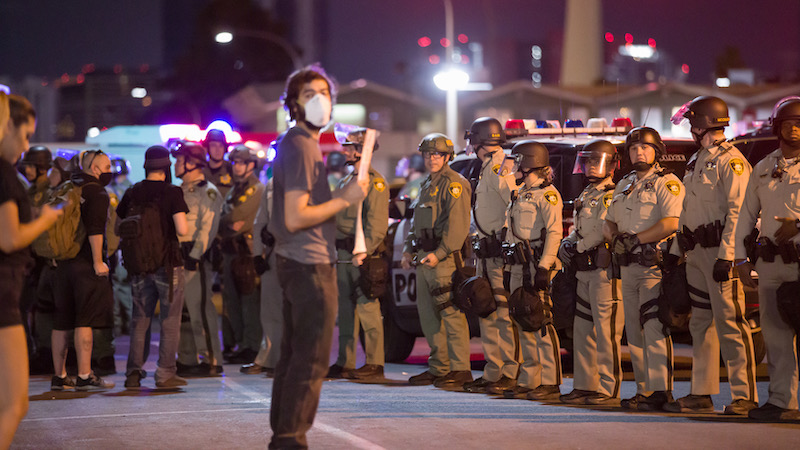Parents and former CNN reporter Campbell Brown recently filed a lawsuit in New York that insists typical teacher contracts end up sending the lowest-quality teachers to poor and minority kids—those who can least afford poor instruction. The Obama administration has also recently directed states to explain how they will fix this situation.
“Evidence has been elicited in this trial of the specific effect of grossly ineffective teachers on students,” Judge Rolf Treu wrote in a June California decision on a similar case, which is under appeal. He continued:
The evidence is compelling. Indeed, it shocks the conscience. Based on a massive study, Dr. Chetty testified that a single year in the classroom with a grossly ineffective teacher costs students $1.4 million in lifetime earnings per classroom. Based on a 4-year study, Dr. Kane testified that students in [Los Angeles] who are taught by a teacher in the bottom 5 percent of competence lose 9.54 months of learning in a single year compared to students with average teachers.
State laws in California give teachers essentially the right to work in public schools for life (called tenure) after less than two years on the job. Schools almost never fire a teacher, even terrible teachers, because it takes so much time and money on legal fees, due to these job protections, Treu noted.
How does this especially hurt poor and minority students? Well, schools have a very difficult time firing bad teachers for being bad teachers, but sometimes they have to layoff personnel. In that case, California law required the districts to fire the newest teachers first. That’s right: Rather than laying off teachers for low quality, schools were forced to fire staff according to how recently they were hired. Teachers who have been working in schools longer also get preference in picking which schools they want to work in, while newer teachers get the bottom-of-the-barrel assignments. Schools that have lots of poor, minority kids are typically bottom-of-the-barrel assignments, so they tend to have the most new teachers, and the most teachers no other school wants.
[pq]What kind of teacher do you think will do the best job in a classroom? One who wants to be there.[/pq]
There are two general ways to solve this problem. The Obama administration has already approved plans such as one from Rhode Island, where the state requires districts to allocate teachers across schools evenly by their quality ratings. So instead of letting teachers get the school they want if they’ve been teaching longer than others, teachers get assigned to schools based on how many effective teachers are already in that school.
However, this treats good teachers like commodities, rather than human beings with free will who should be consulted on where they might prefer to teach. A teacher could have many good reasons for wanting to teach at one school over another, including that her children go to the school, it’s closer to home, she prefers the school’s teaching style, curriculum, or atmosphere, and so forth. Why is it fair to give teachers less freedom if they have proven they are a great teacher? That seems like a punishment for excellence.
But what about the kids nobody wants to teach? They need good teachers, certainly. So how might we both meet kids’ need and teachers’ needs? Well, we already have a system of exchange that makes both parties happy. It’s called a free market.
In a free market, two people make a trade only if they are both happy with what they’re getting. No coercion is necessary. So what could a tough school offer a good teacher that might make her want to go there, instead of being forced to go there? Well, they could offer her higher pay, for one. She’s proven she’s a great teacher, after all. She deserves it. They could offer her other intangible things that teachers value, such as more freedom to run her classroom the way she likes, or fewer classes she has to teach every day, or a co-teacher. There are all kinds of deal-sweeteners that a school could tell teachers they’re willing to trade in exchange for quality teachers. And if schools are free to offer them, and teachers are free to accept them, then both parties can be excited at the deal they have together, rather than having at least one forced into it.
What kind of teacher do you think will do the best job in a classroom: One who wants to be there, or one who has to be there because she’s not allowed to work anywhere else?


